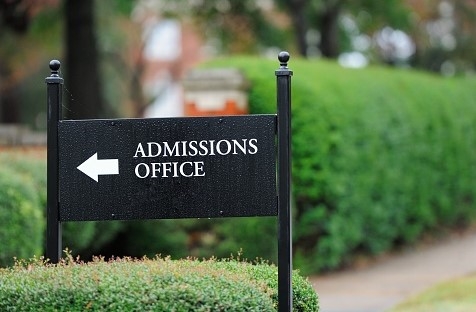You have /5 articles left.
Sign up for a free account or log in.

sshepard/Getty Images
The Common Application has been releasing information on the more than one million people who applied to the 900-plus colleges in its system throughout the last year. And many educators have worried about the impact of the pandemic on admissions.
Now, with the semester under way at most institutions, the Common App has turned to looking at its data and asking whether the changes of the last year are likely to remain or disappear once the pandemic ends. A major change -- on which the Common App previously reported -- is that relatively few people submitted SAT or ACT scores. The number in March was 44 percent, compared to 77 percent the previous year. The Common App’s next report will have more details.
One change this year was created by the Common App: a new question about COVID-19 "community disruption" and how it had affected the students.
"We observed no meaningful differences across various demographic subgroups in applicant response rates to this question, but we observed substantial variation across U.S. states and territories," the Common App report said.
About 20 percent of students answered the question. But it was a more popular question in some states and territories.
"Puerto Rico (40 percent), California (28 percent), Guam (26 percent), and Alaska (25 percent) more frequently reported personal hardships associated with the COVID-19 pandemic than applicants in South Dakota (11 percent), Louisiana (13 percent), and Nebraska (13 percent)," the report said. "These differences suggest applicants’ perceptions and experiences amid the pandemic varied immensely across contexts, perhaps as a function of variation in both community spread and local/state policy responses."
Preston Magouirk, a data scientist with the Common App, said he found "very significant" the "variation in experiences across the country."
He noted this year was one in which colleges changed deadlines and students were later to apply.
Twenty percent of early decisions were delayed, and 15 percent of early-action deadlines (in which applicants don’t need to commit to enroll if admitted) were delayed. The average delay in early decision was 10.54 days, and the average delay for early action was 16.92 days.
For regular decision, 16 percent of the deadlines were extended, by an average of 28.5 days.
And for colleges with rolling admission, 14 percent of deadlines were extended, by an average of 26.19 days.
Applicants responded to those deadlines. In the past, Common App saw surges in the 24 or 48 hours before common deadlines that are used. From what the Common App has documented, it believes students used the extra time.
In releasing the study, the Common App realizes that "so much of the discussion was based on the assumption that this would only be one year," Magouirk said. And now with the Delta variant, he said, there is a real possibility that the pandemic will be affect at least part of this year.
On test scores, he expects roughly the same number of colleges to be test optional in the coming year.
But as on many other things, it’s not yet clear how many high schools or colleges will be forced to shut down in-person education this year, and for how long.




